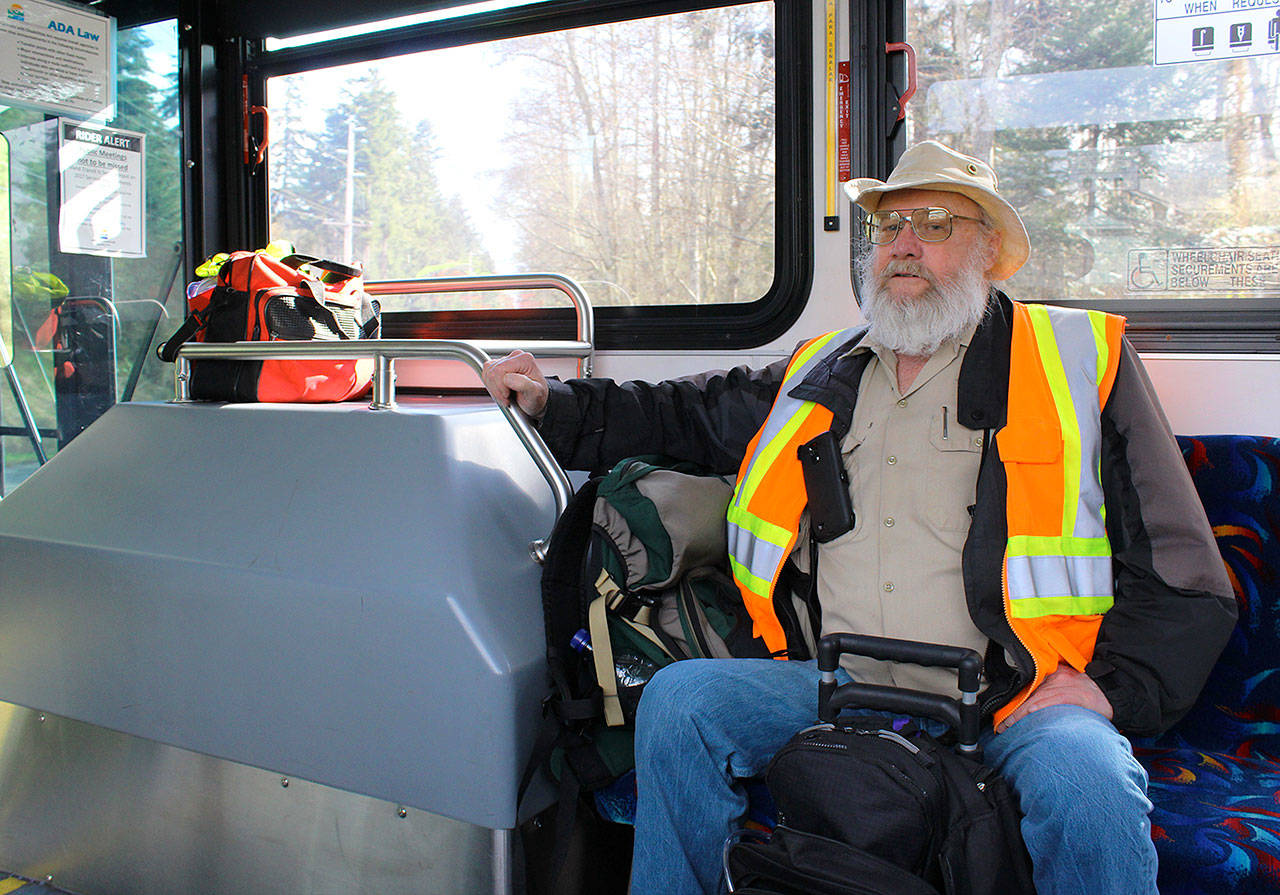It’s likely that some Island Transit routes will be changing — or at least tweaked — and the agency wants riders’ input on the proposals.
Island Transit held a series of community meetings last October to gauge the community’s thoughts on the current routes. Based on that information, and a review by the staff, officials came up with proposals to make the routes more efficient and to better serve the public, Director Mike Nortier said.
“We want to know how this fits into with your needs and the needs of the community,” he said.
The agency is currently holding a second round of community meetings to solicit feedback on the service improvement plans. The next meeting on Whidbey Island is from 5-7 p.m., Thursday, March 30 at the Freeland library.
The final Whidbey meeting is noon-2 p.m., Tuesday, April 11 at the Island Transit building on State Highway 20 near Coupeville.
The transit system plays an important role in the lives of many residents who depend on buses to get to jobs, medical appointments and other services.
“This is my sole source of transportation and I use them almost every day,” said Mike Swink of Langley as he rode the Route 1 northbound bus last week.
He also regularly catches the shorter routes from Freeland and Langley that connect with main Route 1 buses that travel the main corridor from Clinton to Oak Harbor.
“I’m okay with these buses,” Swink added. “But maybe they should start charging people before they run out of money again.”
Nortier points out that routes haven’t changed — except for temporary budget-related cuts in 2014 — for about 10 years.
Nortier stressed that the proposed changes include only those the agency can afford.
The plans do not take into account state grants the agency may or may not receive from the state legislature. Transit officials once again requested the grants to fund the routes that connect to other counties — the 411 and 412 routes.
The idea, he said, is for the agency to be self sufficient within its own budget first. If the grants come through, it would free up Island Transit funds that could possibly be spent elsewhere in the service, such as to expand routes or bring back Saturday service.
“At the end of the day, we’re going to have a balanced budget,” Nortier said.
If the grants don’t come through, the agency will continue the two 411 routes — which connect Whidbey and Camano to Skagit County — with Island Transit dollars.
The 412 routes between Everett and Camano was the first Island Transit route to charge fares. It hasn’t been popular enough to continue without state dollars, Nortier said.



